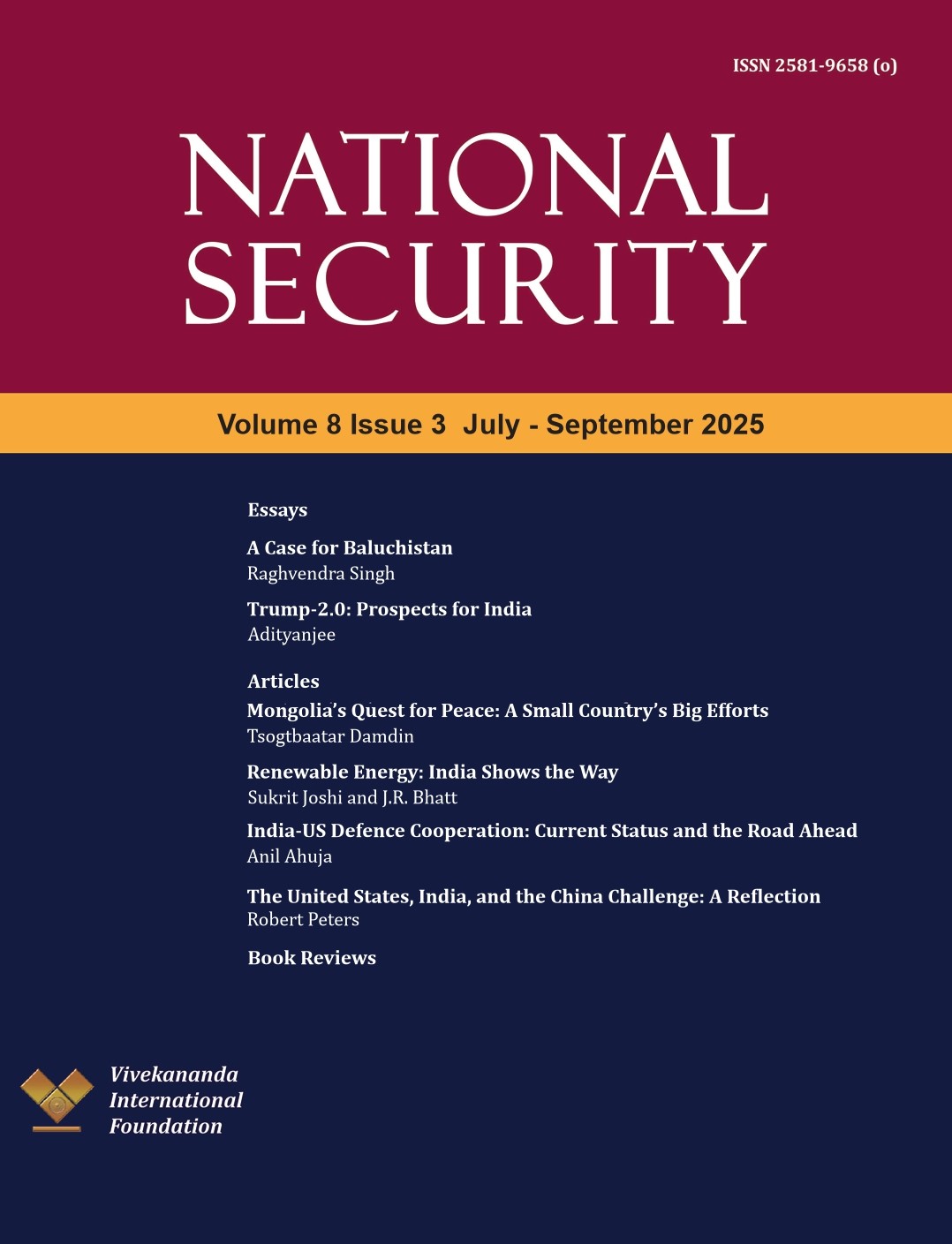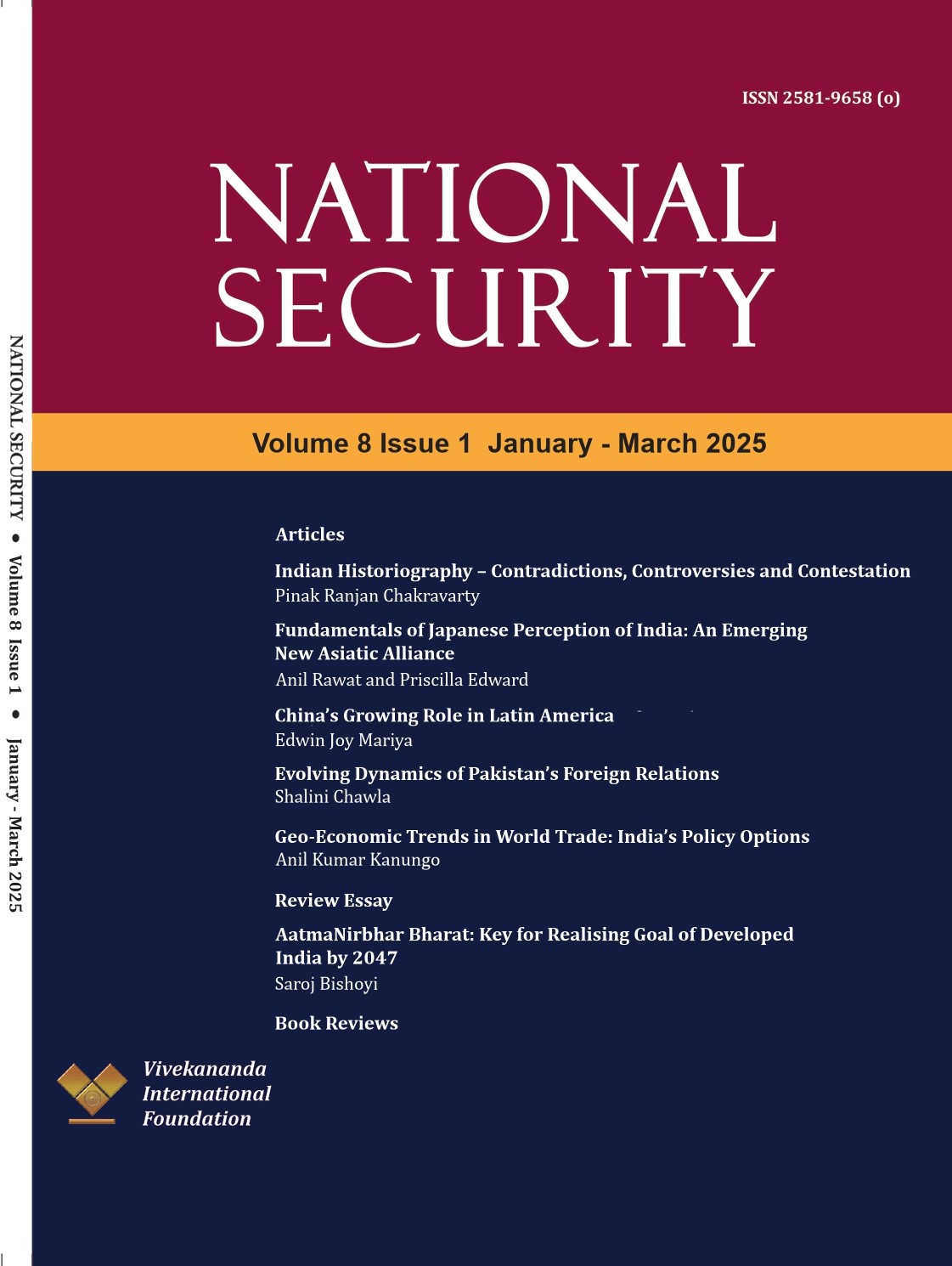National Security
Published in Association with Vivekananda International Foundation
Current Volume: 8 (2025 )
e-ISSN: 2581-9658
Periodicity: Quarterly
Month(s) of Publication: Mar, Jun, Sep & Dec
Subject: Political Science & International Affairs
DOI: 10.32381/NS
Online access is free for the Research Faculty of VIF
Swami Vivekananda, Hindu Dharma and ‘Social Ethics’ in the Nineteenth Century
By : Harshvardhan Tripathy
Page No: 252-282
Abstract
In nineteenth-century colonial India, Hindu Dharma was attacked by colonial machinery and Christian missionaries for lacking social ethics and morality,with an understanding that Christianity had an ‘inherent and timeless’ social ethic and was concerned with the social upliftment of the poor. This paradigm to criticise Hinduism was also extended to criticise those Hindu intellectuals, especially Swami Vivekananda, who were deliberating over the question of ethics and morality, intending to make Hindu Dharma an agent of social change.These developments in Hindu Dharma were criticised as an outcome of or reaction to Christian social ethics and thereby were declared inauthentic in both colonial and post-colonial periods. By historicising and contextualising the concept of Christian social ethics and morality, this paper debunks the propaganda that concern for the poor and the marginalised was an ‘inherent and timeless’ feature of Christianity.
Author :
Harshvardhan Tripathy is a doctoral candidate at the School of Social Sciences, Jawaharlal Nehru University (JNU), New Delhi, India. His research topic is “The Ramakrishna Math and Mission: Explorations into a ‘Modern’ Religious Movement.
DOI: http://doi.org/10.32381/NS.2023.06.03.2









